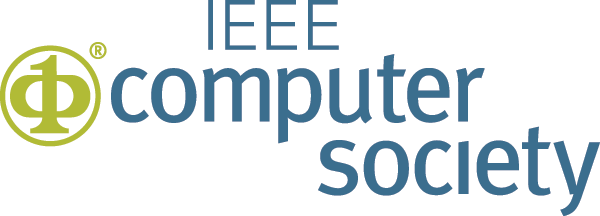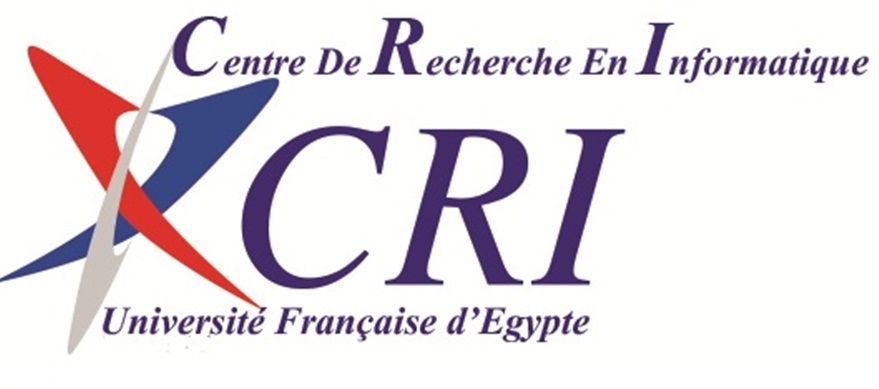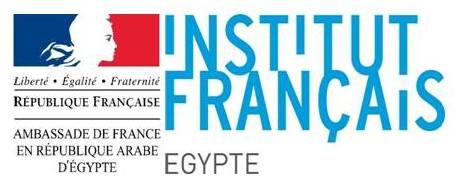TECHNICAL PROGRAM
Click here to download the PDF file
| Monday April 11 |
Tuesday April 12 |
Wednesday April 13 |
|
| 09:00-09:30 | Open Ceremony | ||
| 09:00-10:30 | MoWNet Keynote 1: | MoWNet Keynote 2: | MoWNet Keynote 4: |
| 10:30-11:00 | Coffee Break | ||
| 11:00-12:30 | MoWNet M1:VANET
MoWNet M2: Cognitive Radio |
MoWNet M6:Software Defined Networks
MoWNet M7:Wireless Networks |
MoWNet M8: MAC
M2M5G M9: Application of Wireless Networks MoWNet M9: Application of Wireless Networks |
| 12:30-14:00 | Lunch | Lunch | Touristic Visit in Cairo |
| 14:00-15:00 | MoWNet M3:Distributed Systems | MoWNet'2016/IoT'2016 Workshop Keynote 3 | |
| 15:00-15:30 | MoWNet M4:Sensor Networks | INFRA:IoT Infrastructure | |
| 15:30-16:00 | Coffee Break | ||
| 15:30-16:30 | MoWNet M5: Applications of Wireless Networks | Coffee Break | |
| 16:30-17:30 | PROTOCOLS: IoT Protocols | ||
| 17:30-20:00 | |||
Monday, April 11
09:00 - 09:30
Open Ceremony
Room: Auditorium
Chair: Abderrahim Benslimane (University of Avignon & LIA/CERI, France)
09:30 - 10:30
MoWNet Keynote 1: The Use of Unlicensed Spectrum for Wireless Communications: Past, present, and Future
Keynote speaker: Osama Aboul-Magd, Huawei, Canada
Room: Auditorium
Chair: Abderrahim Benslimane (University of Avignon & LIA/CERI, France)
Abstract
In 1985 the US Federal Communications Commission (FCC) decided to make several bands of the wireless spectrum available without a government license. The so called "garbage band of 2.4 GHz" was allocated to equipment such as microwave ovens. Since 1985, this band could also be used for Industrial, Medical, and Scientific (ISM) purposes.The move by the FCC has unleashed a wave of innovations in the telecommunication industry that fundamentally changed humans experience and the interaction with networks. This wave of innovations manifests itself in the introduction of affordable networking technologies capable of satisfying users' needs in terms of mobility and connectivity. Among those technologies the Wi-Fi networking based on IEEE 802.11 Wireless LAN (WLAN) standards has distinguished itself as the technology of choice for the masses to satisfy their networking requirements at an affordable cost. With the recognition of its economic benefits, more unlicensed spectrum is becoming available by the different administrations around the world. Unlicensed spectrum now extends from sub GHz bands (< 1 GHz) to millimeter wave (mmWave) bands in the vicinity of 30-60 GHz. Several networking technologies are planning to capitalize on the availability of these bands. In addition to Wi-Fi, LTE- advanced (4G) and next generation wireless networks (5G) are also planning to make use of the unlicensed bands.This talk focuses on technologies operating in the unlicensed bands and how they evolved with the spectrum availability. The talk will highlight the role of these technologies in networking, their economic impact, and expected contributions to future technologies such as 5G. The talk will also address coexistence issues between the different communication technologies operating in the same band.
10:30 - 11:00
Coffee Break
11:00 - 12:30
MoWNet'2016: MoWNet M1: VANET
Room: 301
Chair: Haitham S. Hamza (Cairo University, Egypt)
CBQoS-Vanet: Cluster-based Artificial Bee Colony Algorithm for QoS Routing Protocol in VANETMohammed El Amine Fekair (University of Ouargla, Algeria); Abderrahmane Lakas (UAE University, UAE); Ahmed Korichi (University of Ouargla, Algeria)
Autonomous Localization Scheme for Mobile Sensor Networks in Fading Environments
Salah M Abdelmageid (Al-Azhar University, Egypt)
An Enhanced TDMA Cluster-based MAC (ETCM) for Multichannel Vehicular Networks
Nurullah Shahin and Young-Tak Kim (Yeungnam University, Korea)
Distributed Time Synchronization Mechanism For Large-Scale Vehicular Networks
Yamen Nasrallah (University of Ottawa, Canada); Irfan S. Al-Anbagi (University of Regina, Canada); Hussein T Mouftah (University of Ottawa, Canada)
MoWNet'2016: MoWNet M2: Cognitive Radio
Room: 302
Chair: Yasser Gadallah (The American University in Cairo, Egypt)
Wide-Band Sensing and Optimization for Cognitive Radio Networks using multi-rate sub-Nyquist spectrum sensing (MS3)Mohamed Torad (Higher Tecnological Istitute, Egypt); Ahmed Kassas (High Institute of Engineering Shrouk Academy, Egypt); Hadya El-Hennawy (Ain Shams University, Egypt)
PSO-Adaptive Power Allocation for Multiuser GFDM-Based Cognitive Radio Networks
Abd elhamed Dawoud (Faculty of Electronic Engineering, Menofia University, Egypt)
On the Beamforming and Blind interference Threshold Estimation In Underlay Cognitive System
Yasser Naguib (Student at Information Technology Institute, Egypt)
Generalized Implicit Cooperation with Slotted Contention in Cognitive Radio Wireless Sensor Networks
Hany Ali Abd El-Aal and Ahmed Khattab (Cairo University, Egypt); Magdi Fikri (Dept. of Electrical Engineering Cairo University Egypt, Egypt)
12:30 - 14:00
Lunch
14:00 - 15:30
MoWNet'2016: MoWNet M3: Distributed Systems
Room: 301
Chair: Young-Tak Kim (Yeungnam University, Korea)
Minimal Throughput Maximization for MIMO Cognitive Radio Networks Using Particle Swarm OptimizationAbd elhamed Dawoud, Mona Shokair and Mohamed El-Kordy (Faculty of Electronic Engineering, Menofia University, Egypt); Said Elhalafawy (Menouf, Menoufia, Egypt)
Automation of Understanding Textual Contents in Social Networks
Fatma Eltaher (Al-Azaher, Egypt); Salah M Abdelmageid (Al-Azhar University, Egypt)
VOLTE Deployment Scenarios: Perspectives and Performance Assessments
Mohamed Elwakiel (Ain Shams University, Egypt); Hesham ElBadawy (National Telecommunication Institude, Egypt); Hadia EL Hennawy (Ain Shams University, Egypt)
Consensus-based Information Synchronization for Content-Centric Networks
Gyewan An, Gijeong Kim and Sungwon Lee (Kyung Hee University, Korea)
MoWNet'2016: MoWNet M4: Sensor Networks
Room: 302
Chair: Der-Jiunn Deng (National Changhua University of Education, Taiwan)
Smart Mobile System for Pregnancy Care Using Body SensorsMário Moreira (University of Beira Interior, Portugal); Joel J. P. C. Rodrigues (Instituto de Telecomunicações, University of Beira Interior, Portugal); Antonio Oliveira (Federal Institute of Ceara, Brazil); Kashif Saleem (King Saud University, Saudi Arabia)
Partial Discharge Impulsive Noise in 735 kV Electricity Substations and its Impacts on 2.4 GHz ZigBee Communications
Ndeye Bineta Sarr (Laboratoire XLIM & Université de Poitiers, France); Hervé Boeglen (Laboratoire XLIM-SIC, France); Basile Landaabalo Agba (Institut de Recherche d'Hydro-Québec & École de technologie superieure, Canada); Francois Gagnon (Ecole de Technologie Superieure, Canada); Rodolphe Vauzelle (XLIM, France)
15:30 - 16:00
Coffee Break
16:00 - 17:30
MoWNet'2016: MoWNet M5: Applications of Wireless Networks
Room: 301
Chair: Walaa Hamouda (Concordia University, Canada)
Lattice Reduction and Orthogonal Space-Frequency Block Code in correlated Channels: Performance Analysis and New ResultsDiaa Noby, Ahmed Hesham Mehana and Ahmed Shalash (Cairo University, Egypt)
Determining the Effectiveness of Soil Treatment on Plant Stress using Smart-phone Cameras
Anurag Panwar (University of South Florida, USA); Mariam Al-Lami (Missouri University of Science and Technology, USA); Pratool Bharti and Sriram Chellappan (University of South Florida, USA); Joel Burken (Missouri University of Science and Technology, USA)
Performance of WiMAX for Smart Grid Applications
Oana Neagu and Walaa Hamouda (Concordia University, Canada)
Performance of Smart Grid Communication in the Presence of Impulsive Noise
Oana Neagu and Walaa Hamouda (Concordia University, Canada)
Tuesday, April 12
09:30 - 10:30
MoWNet Keynote 2: Trustworthiness and navigability in the social Internet of Things
Keynote speaker: Luigi Atzori, University of Cagliari, Italy
Room: Auditorium
Chair: Der-Jiunn Deng (National Changhua University of Education, Taiwan)
Abstract
The integration of social networking concepts into the Internet of Things has led to the Social Internet of Things (SIoT) paradigm, according to which objects are capable of establishing social relationships in an autonomous way with respect to their owners with the benefits of improving the network scalability in information/service discovery. After an introduction of the SIoT paradigm, this talk focuses on two problems: trustworthiness management and friendship selection. As to the trustworthiness management two models are discussed: in the subjective model each node computes the trustworthiness of its friends on the basis of its own experience and of the opinion of the friends in common with the potential service providers; in the objective model, the information about each node is distributed and stored making use of a distributed hash table structure so that any node can make use of the same information. As to the friendship selection, the major principle is to consider its impact on overall network navigability. The proposed heuristics are based on local network properties and on their impact on the overall network structure in terms of number of giant components, average degree of connections, local clustering and average path length.
10:30 - 11:00
Coffee Break
11:00 - 12:30
MoWNet'2016: MoWNet M6: Software Defined Networks
Room: 301
Chair: Hesham Mohamed Elbadawy (National Telecommunication Institute, Egypt)
Multi-RAT Mobile Node Architecture for Efficient Handover using Software Defined NetworkYumi Oh, Gijeong Kim and Sungwon Lee (Kyung Hee University, Korea)
A Dimensioning Framework for Indoor DAS LTE Networks
Salah Elhoshy and Mohamed Ibrahim (Alexandria University, Egypt); Mohamed Ashour (GUC, Egypt); Tallal Elshabrawy (The German University in Cairo, Egypt); Hany F Hammad (German University Cairo, Egypt); Mohamed Rizk (Alexandria University, Egypt)
An SDR Platform for Performance Evaluation of OFDM-based Indoor DAS Solutions
Kareem Tarek (DarGroup, Egypt); Tallal Elshabrawy (The German University in Cairo, Egypt); Mohamed Ashour (GUC, Egypt); Hany F Hammad (German University Cairo, Egypt)
Persistent Store-based Dual Replication System for Distributed SDN Controller
Sangyun Han and Sungwon Lee (Kyung Hee University, Korea)
MoWNet'2016: MoWNet M7: Wireless Networks
Room: 302
Chair: Muhammad Umer Farooq (University College Cork, Ireland)
Millimeter-Wave Small-Cells Traffic Off-Loading with Large-Scale Antenna Arrays for UDNHaitham Abbas (German University in Cairo, Faculty of Information Engineering and Technology, Egypt); Mohamed Shehata (German University in Cairo, Egypt); Khaled Mohamed Shawky Hassan (Fraunhofer Institute for Integraded Circuits (IIS), Germany); Martin Kurras (Fraunhofer Heinrich Hertz Institute & Fraunhofer, Germany); Lars Thiele (Fraunhofer Heinrich Hertz Institute, Germany)
Investigating Different Factors affecting the Infection Rate of Internet Worms
Nagwan Abdelsamee (Princess Nourah bint Abdulrahman University & College of Computer and Information Sciences, Saudi Arabia)
A Fast Ray Tracing Algorithm for Network Planning based on Relative Coverage Computations
Mohamed Ashour (GUC, Egypt); Mohamed Ibrahim and Salah Elhoshy (Alexandria University, Egypt); Youstina Megalli and Tallal Elshabrawy (The German University in Cairo, Egypt); Hany F Hammad (German University Cairo, Egypt); Mohamed Rizk (Alexandria University, Egypt)
Performance Evaluation of IoT Protocols under a Constrained Wireless Access Network
Yuang Chen (Queen's University & Carleton University, Canada); Thomas Kunz (Carleton University, Canada)
12:30 - 14:00
Lunch
14:00 - 15:00
IoT'2016 Workshop
MoWNet'2016/IoT'2016 Workshop Keynote 3: Cyber-Physical Systems: Reality, Dreams, and Fantasy
Keynote speaker:Magdy A. Bayoumi, University of Louisiana at Lafayette (UL Lafayette), USA
Room: Auditorium
Chair: Abderrahim Benslimane (University of Avignon & LIA/CERI, France)
Abstract
The integration of physical systems with networked sensing, computation networks and embedded control with actuation has led to the emergence of a new generation of engineered systems, the Cyber-Physical Systems (CPS). Such systems emphasize the link between cyber space and physical environment (i.e., time, space, and energy). CPS represents the next generation of complex engineering systems. They are large scale dynamic systems that offer significant processing power while interacting across communication networks.CPS will help to solve the grand challenges of our society, such as, aging population, limited resources, sustainability, environment, mobility, security, health care, etc. Applications of CPS cover a wide band of economic, medical, and entertainment sectors. It includes; Transportation: automobiles, avionics, unmanned vehicles and smart roads; Large Scale Critical Infrastructure: bridges, mega buildings, power grid, defense systems; Health Care: medical devices, health management networks, telemedicine; Consumer Electronics: video games, audio/video processing, and mobile communication. Building Cyber-Physical Systems is not a trivial task. The difficulty arises from the existing gap in modeling and computing of the physical and cyber environments. The design process require new theories, models, and algorithms that unify both environments in one framework. None of the current state-of-the art methods are able to overcome the challenges of developing the unified CPS design paradigm.Several of these issues will be discussed in this talk. Case studies of real world CPSs will be illustrated.
15:00 - 16:00
INFRA (IoT'2016 Workshop): IoT Infrastructure
Room: 301
Chair: Ayman A. Abdel-Hamid (Arab Academy For Science, Technology, and Maritime Transport, Egypt)
Paper Presentations @ 20 minutes/each
CBSTM-IoT: Context-based Social Trust Model for The Internet of ThingsSherif Abdel Rafey (Arab Academy for Science, Technology, and Maritime Transport, Egypt); Ayman A. Abdel-Hamid (Arab Academy For Science, Technology, and Maritime Transport, Egypt); Mohamad Abou El-Nasr (Arab Academy for Science, Technology and Maritime Transport, Egypt)
Classification and Analysis of IEEE 802.15.4 PHY Layer Attacks
Yasmin Amin (German University in Cairo & GUC, Egypt); Amr Talaat (Germany University in Cairo, Egypt)
Slinging MUD: Manufacturer Usage Descriptions
Eliot Lear (Cisco Systems GmbH, Switzerland); Brian Weis (Cisco Systems, USA)
16:00 - 16:30
Coffee Break
16:30 - 17:30
PROTOCOLS (IoT'2016 Workshop): IoT Protocols
Chair:Ayman A. Abdel-Hamid (Arab Academy For Science, Technology, and Maritime Transport, Egypt)
Room: 301
Distributed Monitoring in 6LoWPAN based Internet of Things
Abderrahim Benslimane (University of Avignon & LIA/CERI, France); Basma Mostafa (Faculty of Computers & Information, Cairo University, Egypt); Miklos Molnar (LIRMM / University Montpellier 2, France); Eric Boureau (LIRMM, University of Montpellier, France); Mohamed Saleh (Cairo University, Egypt)
Towards A Modular IoT Network Model: Low Power Radio Domain Use-Case in Linear-Topology Wireless Sensor Network
Sushanta Mohan Rakshit (University of Nebraska - Lincoln, USA); Michael Hempel, Subharthi Banerjee and Hamid Sharif (University of Nebraska-Lincoln, USA)
Contiki-AMAC - The Enhanced Adaptive Radio Duty Cycling Protocol: Proposal and Analysis
Moataz Youssef (Cairo University & VALEO, Egypt); Khaled Elsayed (Cairo University, Egypt); Ahmed H. Zahran (Cairo University & University College Cork, Egypt)
Wednesday, April 13
09:30 - 10:30
MoWNet'2016 Keynote Speaker 4: Machine-to-Machine Communications in Smart Cities
Keynote speaker:Hussein T. Mouftah, University of Ottawa, Canada
Room: Auditorium
Chair: Abderrahim Benslimane (Informatics Research Center (CRI), French University of Egypt, France)
Abstract
The transformation of our current cities into smarter cities will bring challenges in diverse areas such as the transportation system, the electricity system, and wearable systems, just to name a few. In smart cities, Information and Communication Technologies (ICT), and in particular Machine-to-Machine (M2M) Communications, will play a vital role for providing services in the urban environment. These services include real time monitoring and reaction in time through wireless sensor and actuator networks. Smart Grids (SGs), Intelligent Transportation Systems (ITS), Internet of Things (IoT), Electric Vehicles (EVs), and Wireless Sensor Networks (WSNs) will be the building blocks of futuristic smart cities. Smart grid refers to the modernization of traditional power grid by incorporating two-way digital communication support at generation, transmission, and distribution level. Intelligent transportation system refers to making the vehicular traffic smarter by reducing congestion, optimized fuel consumption, shorter routes, and better safety, self-driving cars by using communication and sensing technologies. Internet of things refer to a world-wide network of interconnected objects uniquely addressable, employing M2M communications, based on standard communication protocols and allows people and things to be connected Anytime, Anyplace, with Anything and Anyone, ideally using Any path/network and Any service. IoT can be very useful for resource management in the context of smart cities. Wireless sensor networks are composed of sensor nodes capable of performing sensing and implementing the M2M communications. All these technologies will help to build a smart city. In this presentation we will address technology trends with a focus on M2M communications in smart cities.
10:30 - 11:00
Coffee Break
11:00 - 12:30
M2M5G’2016 Workshop M9: Application of Wireless Networks
Room: 302
Chair: Salma Ghoneim (French University in Egypt, Egypt)
An Annulus-Based Access Class Barring Scheme for Stationary Machine-Type Communications DevicesXiangdong Gao (Beijing University of Posts and Telecommunications, P.R. China); Hui Tian (Beijng university of posts and telecommunications, P.R. China); Xinchen Lyu (Beijing University of Posts and Telecommunications, P.R. China)
Overlaying Machine-to-Machine (M2M) Traffic over Human-to-Human (H2H) Traffic in OFDMA System: Compressive-Sensing Approach
Ameha Abebe and Chung G. Kang (Korea University, Korea)
15:30 - 16:00
MoWNet M8: MAC
Room: 301
Chair: Nidal Nasser (Alfaisal University, Saudi Arabia)
Benefits of the IEEE 802.15.4's MAC Layer Acknowledgements in Ad-Hoc Networks: an Experimental AnalysisMuhammad Umer Farooq (University College Cork, Ireland); Thomas Kunz (Carleton University, Canada)
QoS Provisions in Next Generation WLAN MAC
Der-Jiunn Deng (National Changhua University of Education, Taiwan); Kwang-Cheng Chen (National Taiwan University, Taiwan); Rung-Shiang Cheng (Kun Shan University, Taiwan)
An Identification and Prevention of Theft-of-Service Attack on Cloud Computing
Azeem Ahmed, Nidal Nasser and Muhammad T Anan (Alfaisal University, Saudi Arabia)
Power Allocation Strategies for Non-Orthogonal Multiple Access
Mohamed El-Sayed (Cairo University, Egypt); Ahmed S. Ibrahim (Florida International University, USA); Mohamed Khairy (Elec. and Comm. Dept., Faculty of Eng., Cairo Univ, Egypt)
MoWNet M9: Application of Wireless Networks
Room: 302
Chair: Salma Ghoneim (French University in Egypt, Egypt)
Detection Techniques for Data-Level Spoofing in GPS-Based Phasor Measurement UnitsFu Zhu, Amr Youssef and Walaa Hamouda (Concordia University, Canada)
Performance Evaluation of CoMP Methods under RF Calibration Errors
Amr Khashaba, Mirette Sadek and Salwa Elramly (Ain Shams University, Egypt)





